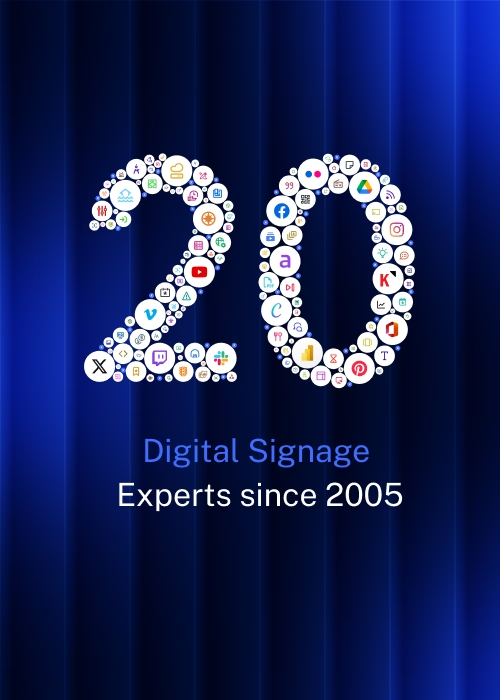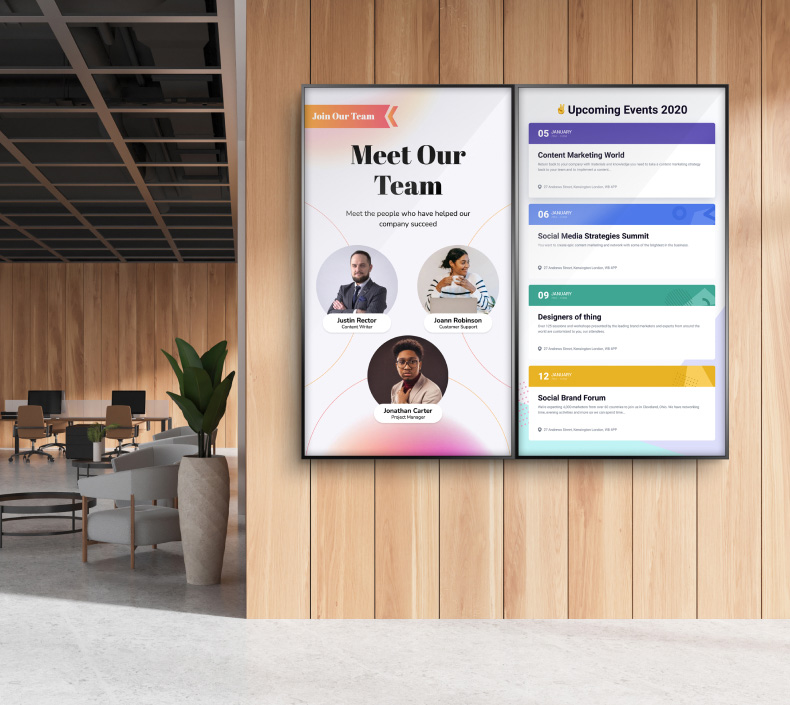The Impact of AI on Content Design
Technology improvement has always aimed to make processes easier, cheaper, more accurate, and faster or to create things that were previously impossible, like AI in content design. According to a data analysis by Market Splash, AI has been making staggering improvements that have made its content indistinguishable from that of professionals.

Moreover, it has dramatically impacted everything, from content generation to marketing and employment. The research shows that 84% of the marketing films are either utilizing or planning to incorporate AI and machine learning and even no-code software. In the business world, almost 60% of business owners are now using AI in their content creation.
However, there have been rising ethical concerns and “hallucinations” you get with AI tools. For example, AI can generate a confident but incorrect response, especially when it lacks the information it was trained on.
The integration of AI in content creation has affected not only the efficiency, output, and quality of content produced but also the processes. Understanding its implications and contributions has become paramount.
Understanding AI in Content Design
AI is like your creative co-pilot. Like a co-pilot helps the pilot navigate and make crucial decisions during a flight, AI is your valuable partner who provides intelligent insights, streamlines processes, and smooths out your overall design journey.
Here are a few instances of the transformative power of AI in content design.
- Generated Content
AI can generate articles, blog posts, and even news stories in seconds. It uses natural language processing (NLP) algorithms to analyze data and develop relevant and grammatically correct content.
- Content Personalization and Recommendation
Have you ever noticed how sites like Netflix can recommend TV shows and movies just like you like them? Amazon can also recommend products just when you need them. This is all thanks to the power of AI. By analyzing vast data, AI algorithms can identify patterns and preferences that help tailor content to a specific user.
- AI & Content Design
AI tools can now create graphics, logos, and a website in seconds. Using machine learning algorithms, AI analyzes data and generates visually appealing designs on brand.
- Content Curation
With the vast amount of online information, finding high-quality and relevant information can be a hassle. However, AI-powered tools can now analyze data and recommend content relevant to your topic or audience. This is especially helpful to marketers looking to curate their content for social media channels and email newsletters.
AI in content creation transforms how content is created, from writing to design. Its powered tools can now generate curated and personalized content, making the process more efficient, faster, and cost-effective.
Benefits of AI in Content Design
AI has made significant strides in the content industry, which has seen innovation and development over the years. Here are some benefits of AI in content design.
- Better Audience Targeting and Engagement
The most challenging aspect of personalizing content has been mapping words to individual subjects’ emotional responses and verbal preferences. However, the combination of AI-generated creative content is already showing impressive results.
For example, a large retailer was experiencing declining engagement with its pop-up web-advertising copy, leading to reduced acquisition of high-quality customers and reduced sales from new customers. However, by using Persado’s platform, retail gained a 127% increase in revenue, a 112% increase in orders, and 103% more sign-ups for new shoppers. Moreover, it has shown that incorporating achievement-oriented language in its ads is the best driver for new subscribers.
- Improved Efficiency and Productivity
With AI, tasks requiring extensive human effort can now be automated, freeing time and resources to focus more on strategic areas. An example is chatbots -- they can now handle customer inquiries and support, reducing the need for manual intervention.
AI algorithms can also analyze vast real-time data, providing valuable insights and enabling quick decision-making. AI’s speed, efficiency, and productivity in content design don’t mean faster output but the ability to react in real-time market shifts when it matters the most.
- Enhanced Creativity and Innovation
AI’s automotive ability is now helping humans focus on what matters the most: their unique creative expressions. For example, generative AI can supplement creativity by freeing up creative teams to focus on their core tasks while it takes care of mundane work. AI also offers valuable insights to help generate better ideas and evaluate the quality of raw ideas.
AI can augment human capabilities, expand creativity, improve efficiency and productivity, and revolutionize design.
AI Tools for Content Design
Here are some AI-powered tools that you can now use strategically to improve the productivity of your business.
- Personalize AI: This tool enables businesses to discover products their customers are most interested in. The app tracks user experience that changes daily, thereby providing real-time analyses of user behavior.
- ChatGPT: This is one of the most popular AI tools. It uses a natural language processing (NLP) chatbot to understand and produce human-style conversations and content. Additionally, it can create social media posts, blogs, and blog articles.
- SurferSEO: This is one of the best AI content optimization platforms. This tool will help you plan, write, and optimize content with its 3-step workflow. The new AI writer can whip up search-optimized drafts that are ready to publish and rank.
The goal here is to show you how AI tools can save you time, cost, and resources by supporting the process of creating content that truly resonates with your audience. While handling the busy work, you can focus on what matters most in your business.
Challenges and Considerations
Adopting and integrating AI into your business requires some critical considerations so that you can experience its full potential. They are as follows:
- Quality Control and Ethical Considerations
Ensuring AI’s ethical use in content creation creates a balance of fostering innovation while upholding moral benchmarks. In this regard, a common challenge can be mitigating the inherent biases within AI algorithms, which can lead to discriminatory practices without careful oversight.
Also, there can be the prospect of misinformation in AI-generated content that can erode public trust. To curb this, ensure you have a team of professionals that can give you consistency and authenticity. They must provide quality control by proper automation and verify and validate AI-generated content for quality and accuracy.
- Integration with Existing Workflows and Systems
AI’s key integration challenges in a business are compatibility, scalability, and complexity. It requires understanding and leveraging complex algorithms, data models, and integration frameworks. To do this, you must have skilled personnel who can develop a clear integration strategy and ensure data quality and availability.
- Skill Development and Training for AI Adoption
To effectively leverage the benefits of AI, you must ensure you have the right team. Conduct a skills assessment to helpentify the skill gaps within the organization. You can upskill them through training programs or reskilling initiatives so you can hone their capabilities in data science, machine learning, and AI technology.
By navigating these challenges and implementing these strategies, you can efficiently overcome any barriers to AI adoption, thereby maximizing the benefits of AI technologies.
Case Studies
Leveraging AI in content design has now become a successful content strategy. Here are some examples.
- Netflix’s Content Recommendation
Netflix has a recommendation engine that optimizes the power of AI in curating content per user experience. It analyzes data on the user’s viewing habits and then masterfully suggests shows and movies that keep you hooked. This has enhanced user engagement, but its fundamental role in driving a custom-made content strategy for every user showcases the indispensable role of AI in content creation. They exemplify the blended expertise of content creation and data science.
- L'Oréal’s AI Driven Content
This beauty giant integrated AI into its marketing strategies and has since seen improved personalized customer experiences. The organization leverages ModiFace, an AR and AI-driven digital skin diagnostic tool that offers customers personalized recommendations and virtual try-ons. This blend of AI and content has given the brand valuable insight into customer preferences, thus helping to fine-tune marketing efforts and reinforce its stance in the market.
Future Trends
With the constant advancement in technology, we expect more significant breakthroughs in the future. In fact, according to a 2024 MIT Technology Review, the breakthrough is expected to be huge. Large language models will continue to dominate while AI problems, like copyright to doomers, shape the agenda for researchers, regulators, and the public. However, tech companies that heavily invested in generative AI will be under pressure to prove that they can continue making money with generative AI.
Therefore, emerging technologies like AI video production, AI for social media content, and conversational AI for User engagements are expected to advance. Rapid editing and footage analysis tools are expected to emerge.
Conclusion
The influence of AI is growing, from personalized learning experiences to intelligent content curation. What's more, the entertainment and marketing industries are being transformed and enlightened with unprecedented precision. By embracing the transformative power of AI and adopting new tools and strategies, you can take your content design business to another level. Let’s continue to explore these innovative features of AI so we can take its powers to unimaginable levels.







